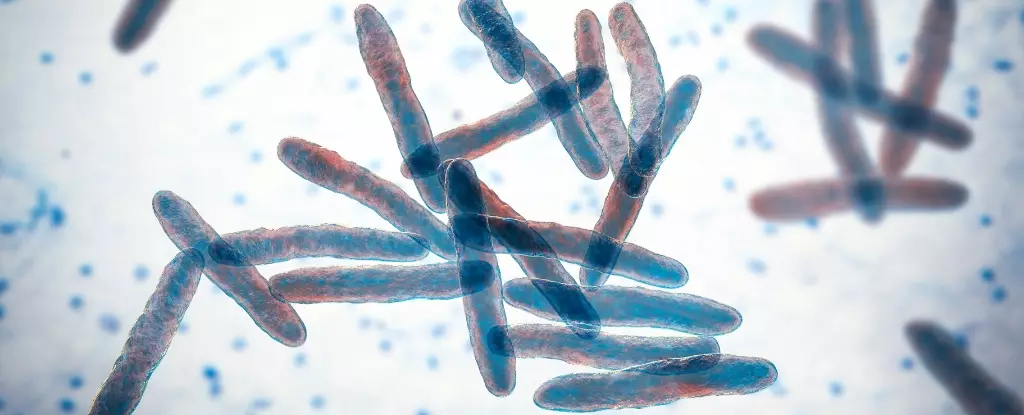Victorians have been facing an alarming increase in cases of Buruli ulcer, a flesh-eating bacterial infection. In 2021 alone, 363 people were diagnosed with this condition, marking the highest number of cases since 2004. The severity of the disease has prompted scientists to delve deeper into understanding its transmission. In a groundbreaking new study, researchers have identified mosquitoes as the key carriers of the bacteria responsible for Buruli ulcer. Surprisingly, these mosquitoes acquire the infection by biting possums, which act as reservoirs for the bacterium Mycobacterium ulcerans. In this article, we will explore the findings of this research and its implications for public health.
Buruli ulcer, also known as Bairnsdale ulcer, begins with a small lesion resembling a mosquito bite. Over several months, the lesion gradually progresses into an ulcer, causing extensive destruction of the underlying tissue. Despite being initially painless, the infection can rapidly escalate if left untreated. The ulcer continues to grow, earning its notorious “flesh-eating” reputation. Fortunately, Buruli ulcer can be effectively treated with a combination of antibiotics administered over six to eight weeks, sometimes accompanied by surgical removal of the infected tissue. While the World Health Organization has classified Buruli ulcer as a neglected tropical skin disease primarily found in west and central Africa, its prevalence in coastal areas of Victoria, Australia, has been on the rise since the early 2000s.
For years, scientists suspected that Australian possums played a role in the transmission of Buruli ulcer. The recent research provides compelling evidence confirming this hypothesis. A team of researchers, including Tim Stinear, Stacey Lynch, and Peter Mee, conducted extensive surveys across a 350 km² area in Victoria to investigate the links between mosquitoes, possums, and infected individuals. By collecting and analyzing mosquitoes, they discovered that only one species, Aedes notoscriptus, commonly known as the Australian backyard mosquito, tested positive for Mycobacterium ulcerans. Further genomic testing revealed a match between the bacteria found in these mosquitoes, possum feces, and humans with Buruli ulcer.
To further strengthen their findings, the researchers employed geospatial analysis. Their investigation revealed a significant overlap between areas where human Buruli ulcer cases were reported and regions inhabited by both mosquitoes and possums carrying Mycobacterium ulcerans. This groundbreaking analysis indicates that Aedes notoscriptus, typically found in backyard habitats, acts as the primary vector responsible for spreading the bacteria. Controlling these backyard mosquitoes becomes crucial in mitigating the risk of not only Buruli ulcer but also other mosquito-borne diseases such as dengue.
Reducing mosquito populations relies on effective backyard mosquito control measures. Individuals can take simple steps to eliminate potential breeding grounds such as potted plant saucers, blocked gutters and drains, unscreened rainwater tanks, and various plastic containers. Emptying these containers at least weekly or discarding them altogether can significantly reduce the mosquito population. Insecticides can serve as an additional measure, though their use should be judicious, as they may have unintended consequences on beneficial insects. However, alternative insecticides that are ecologically safe and can be applied to water-filled containers are emerging as potential solutions. Excitingly, new research suggests that utilizing mosquitoes to spread insecticides themselves may soon be a viable approach.
While advancements in mosquito control are essential, personal protection against mosquito bites remains the first line of defense. Wearing loose-fitting, long-sleeved shirts, long pants, and covered shoes provides physical protection. Additionally, applying insect repellent to exposed skin has proven to be safe and effective. Repellents containing DEET, picaridin, or oil of lemon eucalyptus are recommended for optimal mosquito bite prevention.
The new research elucidating the role of mosquitoes in the transmission of Buruli ulcer marks a significant breakthrough in understanding this flesh-eating bacterial infection. By confirming the link between possums, mosquitoes, and infected individuals, scientists can develop better strategies for controlling and preventing the disease. Through a combination of mosquito control measures and personal protection, the risk of not only Buruli ulcer but also other mosquito-borne diseases can be mitigated. As further research and developments arise, it is crucial to remain vigilant in combating the threat posed by these relentless insects.



Leave a Reply